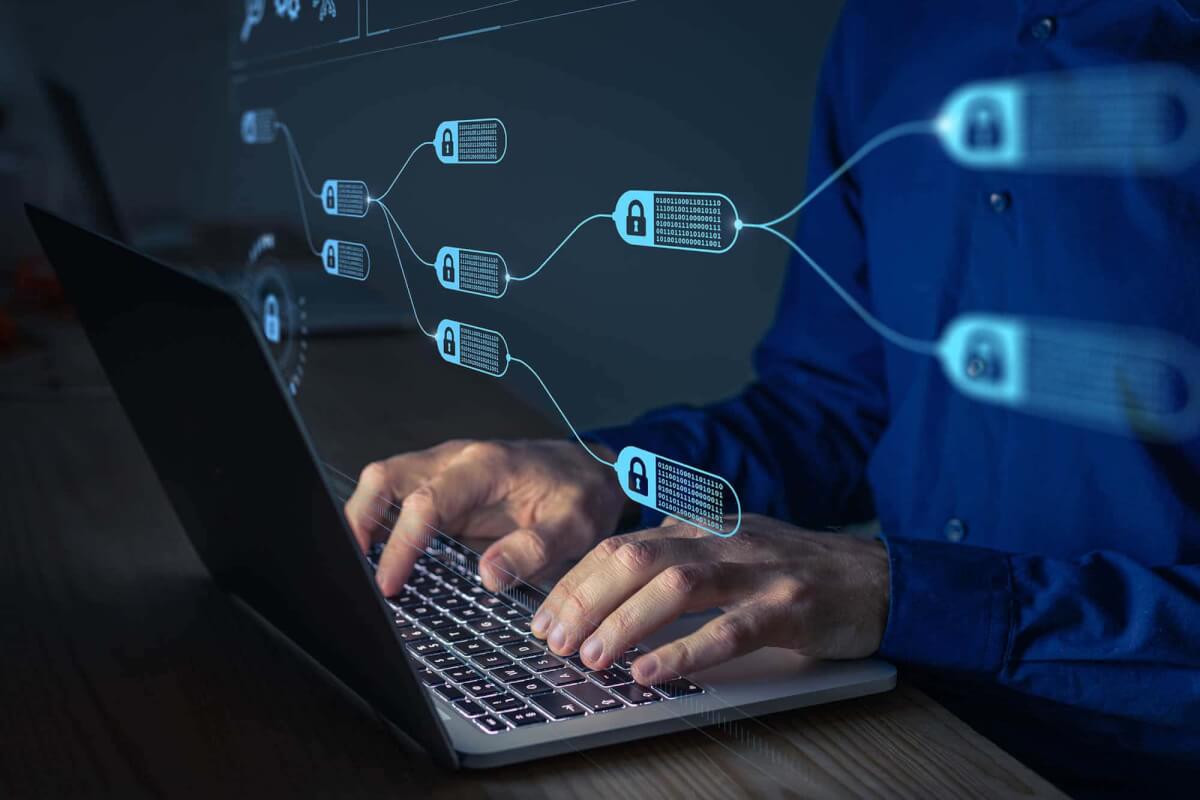Integrating Blockchain with ERP
The ERP software works by centralizing all business data. In addition to empowering businesses to have complete control over the inner processes, ERP software helps them make informed decisions for the future. Further, the data gets updated in real-time, enabling the smooth operation of all functional departments of an organization. Moreover, continuous communication between the functional departments reduces the chances of serious errors. On the other hand, immediate access simplifies the identification of potential setbacks in running processes.
Meanwhile, blockchain, a promising technology, is making inroads into mainstream businesses. Leading companies are implementing blockchain for enabling smart contracts. On the other hand, medium-sized businesses are employing it to have a competitive edge. Blockchain, a distributed and decentralized digital ledger, records transactions across several computers. These records can neither be deleted nor tampered with. This does not only strengthens data security but also improves transparency across processes. This is critical in ERP systems and, therefore, integrating blockchain with ERP improves business efficiency. Read on to know more.
Automates Business Processes through Smart Contracts
Smart contracts have protocols encoded into the blockchain. They are electronic agreements and they get automatically executed as per both the business logic and terms and conditions. If integrated into ERP applications, they automate transactional processes. For example, an ERP system triggers purchase orders when the inventory falls to certain levels. Further, it is also possible for businesses to verify credible transactions without the intervention of any third party
Strengthens Security and Prevents Unauthorized Data Access
Blockchain technology enables data privacy and system security. Businesses can use blockchain to ensure cloud security and detect unauthorized and suspicious access to data. Therefore, integrating blockchain with ERP systems allows businesses to identify suspicious transactions and data vulnerabilities in real-time. This, in turn, helps decision-makers in averting future threats.
Authenticates and Verifies Data
One of the key capabilities of blockchain technology is the verification and authentication of identities. Businesses can use this capability to verify customers’ identities and authenticate financial transactions, staff posted at sensitive locations, etc. This way both the B2C and B2B purchases, as well as payments, can also be made risk-free and automatic.
Helps Overcome Limitations of ERP
ERP systems come not as software but as solutions. A lot of customization is required for businesses to use ERP solutions. Customization often raises issues it becomes difficult to change a system later on. Further, adding new features is quite expensive. Other limitations include visibility (trust gap) and interoperability problems. Integration of blockchain with ERP eliminates the trust gap that exists between ERPs. This contributes to improving visibility throughout systems. For instance, one supply chain system could act as the entire supply chain’s ERP system by maintaining a shared system of records and enable inter-company transactions.
ERP is a complete suite of integrated applications. Businesses use the system to both manage and automate all the backend operations. Integrating blockchain with ERP systems allows businesses to function smoothly as a unified ecosystem. Furthermore, it makes businesses capable of exercising better control over all their resources.




